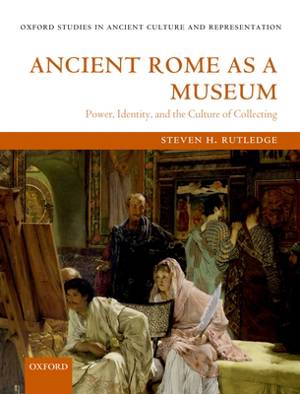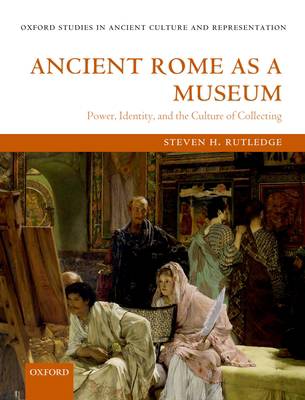
- Retrait gratuit dans votre magasin Club
- 7.000.000 titres dans notre catalogue
- Payer en toute sécurité
- Toujours un magasin près de chez vous
- Retrait gratuit dans votre magasin Club
- 7.000.000 titres dans notre catalogue
- Payer en toute sécurité
- Toujours un magasin près de chez vous
191,45 €
+ 382 points
Description
In antiquity, Rome represented one of the world's great cultural capitals. The city constituted a collective repository for various commemoratives, cultural artefacts, and curiosities, not to mention plunder taken in war, and over its history became what we might call a "museum city." Ancient Rome as a Museum considers how cultural objects and memorabilia both from Rome and its empire came to reflect a specific Roman identity and, in some instances, to even construct or challenge Roman perceptions of power and of the self. In this volume, Rutledge argues that Roman cultural values and identity are indicated in part by what sort of materials Romans deemed worthy of display and how they chose to display, view, and preserve them. Grounded in the growing field of museum studies, this book includes a discussion on private acquisition of cultural property and asks how well the Roman community at large understood the meaning and history behind various objects and memorabilia. Of particular importance was the use of collections by a number of emperors in the further establishment of their legitimacy and authority. Through an examination of specific cultural objects, Rutledge questions how they came to reflect or even perpetuate Roman values and identity.
Spécifications
Parties prenantes
- Auteur(s) :
- Editeur:
Contenu
- Nombre de pages :
- 424
- Langue:
- Anglais
- Collection :
Caractéristiques
- EAN:
- 9780199573233
- Date de parution :
- 18-06-12
- Format:
- Livre relié
- Format numérique:
- Genaaid
- Dimensions :
- 249 mm x 196 mm
- Poids :
- 1114 g







